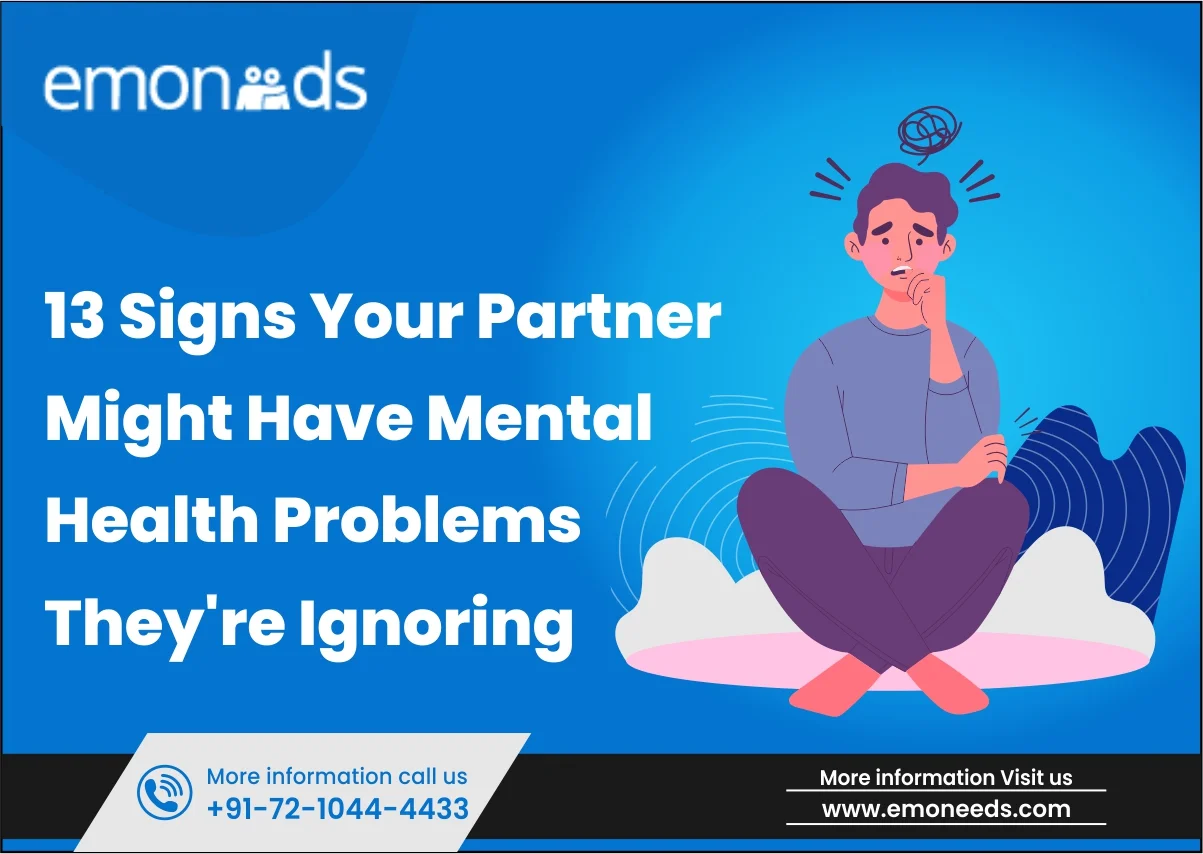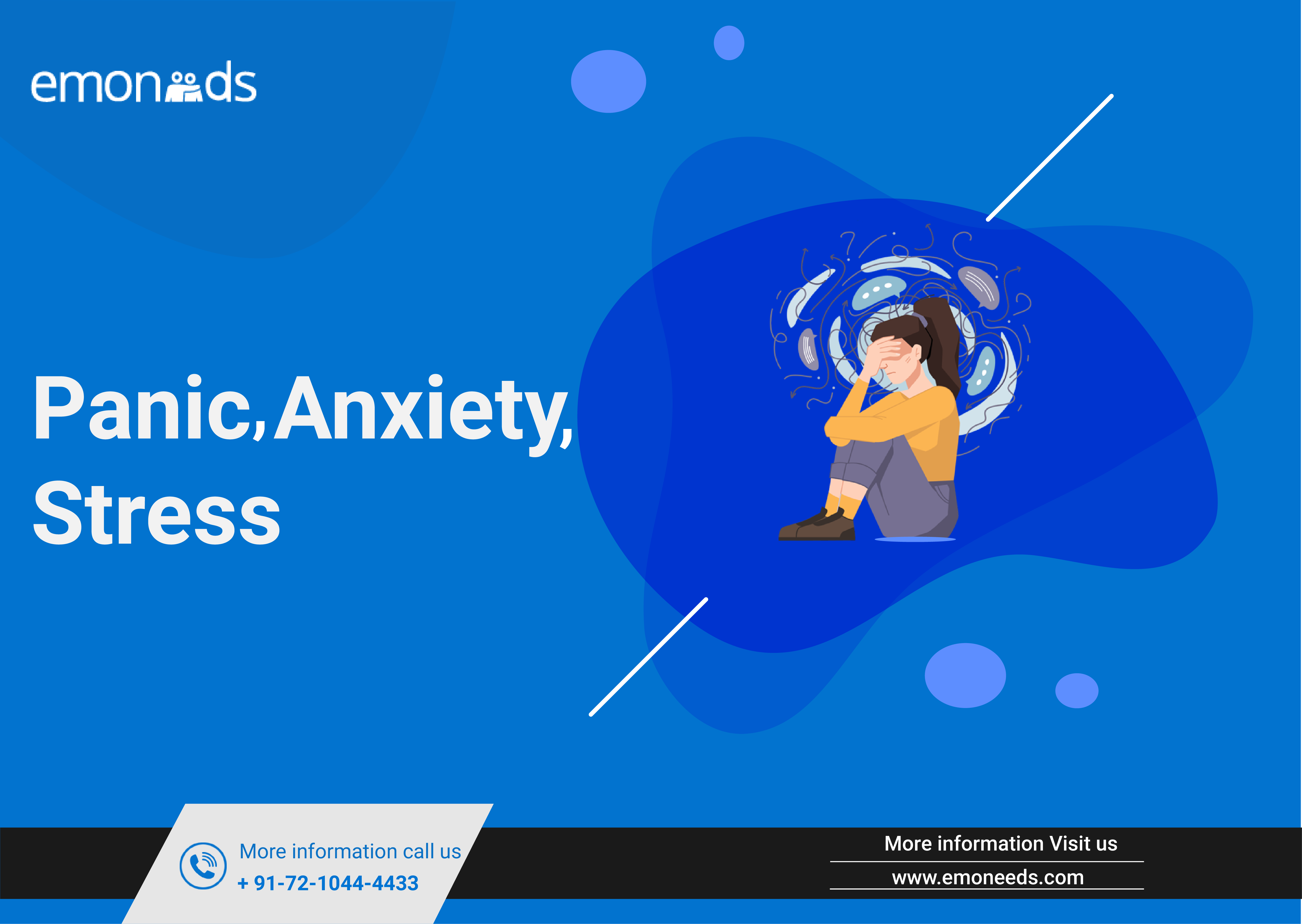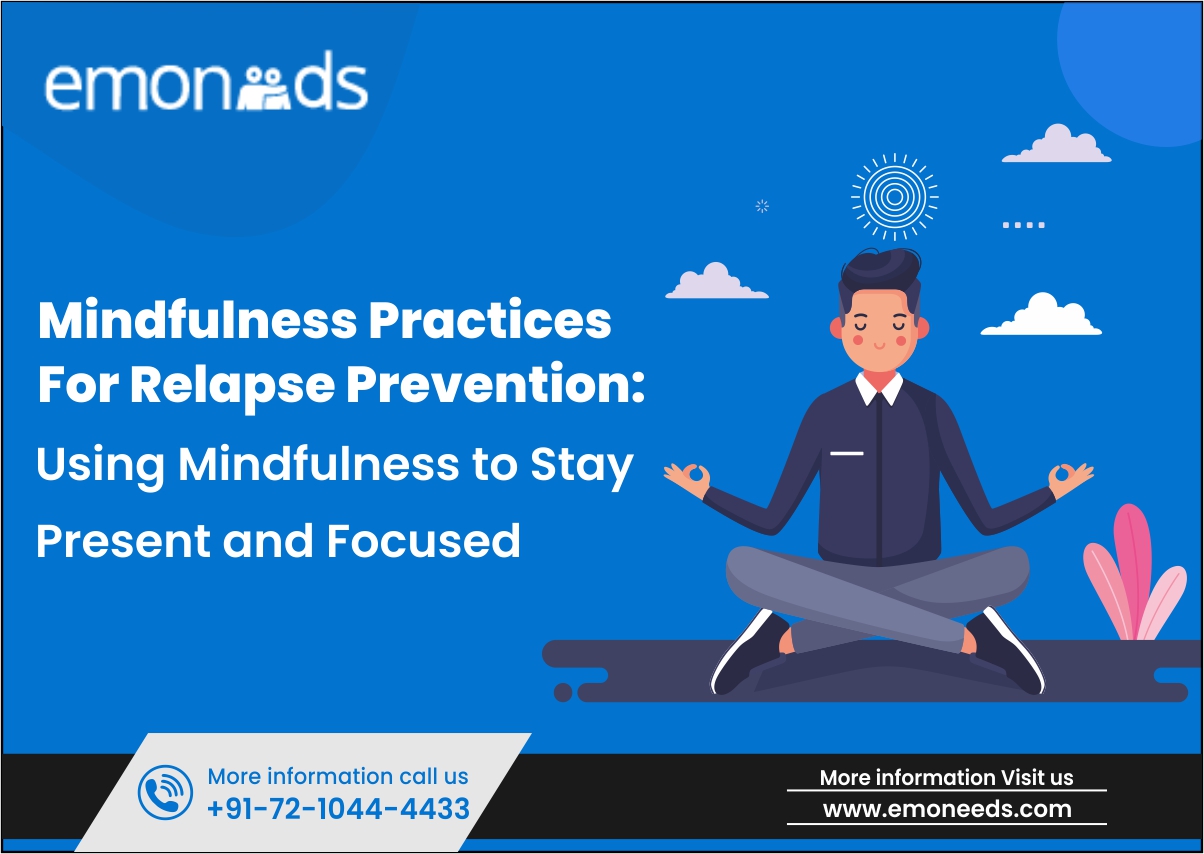
In our fast-paced lives, it’s easy to overlook the subtle signs of mental health struggles in our partners. Sometimes, these signs go unnoticed because they aren’t widely discussed, making it essential to shed light on these less talked about indicators of mental health issues. This blog aims to help you recognize 13 signs that your partner might be grappling with their mental well-being. By understanding these signs, you can offer valuable support and encourage them to seek help when needed.
1. Unexplained Sensory Changes
Have you noticed your partner becoming increasingly sensitive to certain sensory stimuli? These sensory alterations can be indicative of underlying mental health problems. They might not even be aware that these changes are connected to their emotional well-being.
These sensory changes can manifest in everyday life, affecting how your partner experiences the world around them. For example, a sudden aversion to bright lights might result in them avoiding crowded places or feeling uncomfortable in certain social situations. They may also find it challenging to attend events that involve loud music or high levels of noise, preferring quieter, more controlled environments. Additionally, their taste preferences may shift dramatically, causing them to avoid foods they used to enjoy and seek comfort in specific tastes, like sweets or salty snacks.
To help your partner, open the lines of communication and express your understanding and empathy. Encourage them to discuss these sensory changes and consider seeking professional advice when necessary.
2. Compulsive Behaviors
Compulsive behaviors, such as counting, repeated actions, or rituals, can be a sign that your partner is coping with underlying mental health issues. These behaviors may serve as a way to manage anxiety, intrusive thoughts, or a lack of control in their lives.
You may start noticing that your partner engages in repetitive actions that provide them with a sense of security and control. For example, they might count the number of steps they take when walking or feel compelled to check that the doors are locked multiple times. These compulsions can become time-consuming and may interfere with daily activities, causing frustration and distress for both of you.
When addressing compulsive behaviors, offer non-judgmental support and encourage your partner to seek professional help. Therapy can provide valuable strategies for managing and reducing these behaviors.
3. Memory Issues
Lapses in memory and forgetfulness can be connected to mental health struggles. It’s common for individuals dealing with anxiety, depression, or stress to experience difficulties with memory recall and concentration. Your partner may struggle to remember recent events, important details, or even everyday tasks.
You might observe your partner forgetting to complete tasks they once handled effortlessly. For instance, they may forget to turn off the stove after cooking, overlook important appointments or anniversaries, or misplace keys or personal belongings more frequently. These memory lapses can lead to increased stress and frustration, both for your partner and your relationship.
It’s important to be patient and supportive when your partner experiences memory difficulties. Offer reminders and help create a structured routine to ease some of the memory-related stress.
4. Heightened Empathy or Emotional Sensitivity
While heightened empathy and emotional sensitivity are valuable qualities, they can also lead to emotional exhaustion and mental health challenges. If your partner is constantly overwhelmed by the emotions of others, it might be a sign that they’re neglecting their own well-being.
You may notice that your partner absorbs the emotions of those around them to an extraordinary degree. For instance, they may become deeply upset when a friend shares a sad experience, taking on the friend’s emotional burden as if it were their own. This heightened sensitivity can lead to emotional exhaustion, as they constantly carry the emotional weight of others, often at the expense of their own emotional well-being.
This can impact not only their own mental health but also their interactions with you and those around them. Encourage your partner to manage their emotions and establish healthy boundaries. While it’s essential for them to be empathetic, it’s equally vital that they prioritize self-care to maintain their emotional balance.
5. Perfectionism
The pursuit of perfection can be seen in everyday life through your partner’s constant quest for flawlessness. They may apply excessively high standards to various aspects of their life, from their work to their personal appearance. This pursuit of perfection can lead to heightened anxiety and self-criticism.
For example, your partner may spend hours meticulously perfecting their work, even on tasks that do not require such precision. They might express frustration when they make even minor mistakes and engage in self-criticism. These behaviors can lead to increased stress and frustration in their daily life.
Encourage a supportive and empathetic approach when addressing your partner’s perfectionist tendencies. It’s important to convey that imperfection is a part of being human, and they should not be too hard on themselves.
6. Repetitive Speech Patterns
Recurring phrases or speech patterns can serve as a coping mechanism for anxiety or intrusive thoughts. Your partner might repeat specific phrases as a way to soothe themselves in stressful situations.
These repetitions can become noticeable during conversations, and you might observe that they rely on these phrases as a source of comfort and reassurance. While these patterns might seem unusual, they can be a sign of underlying mental health struggles.
Repetitive speech patterns can affect communication in your relationship, leading to moments of miscommunication or difficulty in maintaining a free-flowing conversation. It’s crucial to actively listen and provide empathetic support. By acknowledging these patterns and discussing them with your partner, you can help them find healthier coping mechanisms.
7. Unusual Body Movements or Tics
Sometimes, you might notice your partner exhibiting unexplained body movements or tics that can be associated with stress and anxiety. These movements may be involuntary and might be a manifestation of underlying emotional distress.
For example, your partner may display repetitive hand gestures or facial tics when they are under pressure or experiencing heightened stress. These movements can become more noticeable during stressful situations or conversations, and they may not always be aware of these behaviors. Addressing these behaviors with empathy and understanding is vital. Support your partner by being patient and compassionate when these movements occur. If they are causing distress or discomfort, consider seeking professional guidance.
8. Extreme Empathetic Distress
Excessive empathy for others can become overwhelming and detrimental to your partner’s mental well-being, affecting their daily life and your relationship.
You might observe that your partner becomes emotionally distressed when they encounter others’ suffering, even if it’s through news stories or fictional characters in books or movies. Their emotional reaction to the pain of others can be intense and difficult for them to shake off, leaving them emotionally drained. This heightened empathy can lead to increased anxiety and distress in their daily experiences.
Help your partner navigate and cope with these feelings by discussing healthy ways to manage their empathy and emotional responses. Encourage them to engage in self-care activities and seek professional help if their distress becomes overwhelming.
9. Dissociation
Dissociation can manifest as moments when your partner feels disconnected from their own body or reality. They may describe feeling as though they are watching themselves from outside their body or that the world around them seems unreal.
These episodes may become more noticeable during stressful situations or conflicts. Your partner might describe feeling as though they are going through the motions, disconnected from their emotions or surroundings. They may not always be aware that these episodes are occurring. It’s essential to be a source of support during these moments. Encourage your partner to seek professional help if dissociation becomes frequent or significantly impacts their daily life.
10. Impaired Decision-Making
Sometimes, you might notice your partner struggling with decision-making, particularly when they encounter choices that carry significant consequences. They may become indecisive, fear making the wrong choices, or avoid taking any risks altogether.
For instance, your partner might experience difficulty choosing a restaurant for dinner, fearing they will make the wrong choice and disappoint you. In more critical decisions, such as career choices or major life events, they may delay making choices out of fear and anxiety. This indecision can lead to increased stress and frustration in both your relationship and your daily life.
Empathize with your partner and offer them a safe space to discuss their decision-making challenges. Encourage them to take small steps in regaining confidence in this aspect of their life.
11. Neglecting Self-Care
Neglecting self-care routines can be noticeable as your partner begins to ignore their own well-being. They might skip meals, neglect personal hygiene, or forgo activities they once enjoyed.
For example, you might notice that your partner consistently misses meals or opts for fast food instead of preparing a balanced meal, demonstrating a lack of interest in their nutritional needs. Their personal hygiene habits may also decline, as they skip showers or neglect grooming routines they once valued. Additionally, they may withdraw from hobbies and activities they used to enjoy, preferring to isolate themselves or engage in solitary activities.
Encourage your partner to prioritize self-care. Share practical self-care practices and emphasize the power of self-compassion. By supporting their self-care efforts and actively engaging in these practices together, you can contribute to their healing journey.
12. Loss of Purpose or Identity
You may observe your partner experiencing a loss of identity or purpose, causing them to question their life’s meaning, their role in your relationship, or their place in the world. This sense of confusion and aimlessness can be distressing.
For instance, your partner may express a lack of motivation or struggle to identify their passions and interests, leading to a feeling of emptiness. They may also voice uncertainty about their life’s direction and question their significance in your relationship. These moments of identity crisis can be challenging for both your partner and your relationship.
Helping your loved one during this challenging time involves offering guidance on rediscovering their sense of self and purpose. Engage in open conversations about their interests and aspirations, and encourage them to seek professional guidance if needed.
13. Paranoid Thoughts
Exhibiting paranoid thoughts or unfounded fears can manifest in everyday life as your partner perceives hostility or threats from others, even when there is no evidence to support these beliefs.
For instance, your partner may express concerns that coworkers are conspiring against them, suspecting hidden motives and ill intentions. They may also voice fears about being watched or monitored, even without any credible reason to believe this is happening. These paranoid thoughts can lead to increased anxiety and a lack of trust in others, including you.
It’s crucial to engage in open communication and emphasize the importance of seeking professional help when dealing with paranoid thoughts. Therapy and counseling can provide valuable strategies for managing these thoughts and helping your partner regain a sense of trust and security in their relationship.
Conclusion
Recognizing subtle signs of mental health struggles in your partner is crucial for a healthy relationship. This blog highlighted 13 less-discussed indicators to help you provide the support and understanding your loved one needs. Open communication and empathy are key. Encourage your partner to seek professional help when required. Together, you can face these challenges and ensure a happier, healthier future.
Consider Emoneeds for expert support. We specialize in improving emotional well-being and relationships. Take the first step toward a healthier partnership by contacting Emoneeds today.

